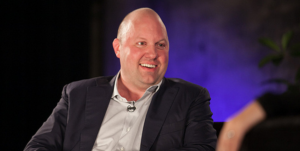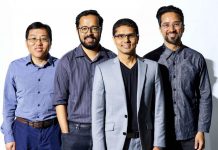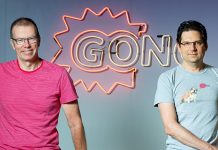Andreessen Horowitz, also known as its alphanumeric URL a16z, is a private venture capital firm founded in 2009 by Marc Andreessen and Ben Horowitz. The Menlo, Park, Calif.-based investment firm has raised over $6.3 billion in capital and has targeted high-flying tech companies such as Airbnb, Facebook, Foursquare Groupon and Lyft. It invests in companies from seed to late stage, particularly in the social media and technology sectors with a focus on industries such as software, back-end infrastructure, infrastructure of the Internet, cloud computing, enterprise software and services, consumer, biotech and the intersection of consumer science and life sciences.
The elite Silicon Valley venture capital firm offers startups more than just institutional funding. It leverages deep industry expertise from its network of connected professionals and market leading portfolio companies. The firm provides entrepreneurs with access to expertise and insights in innovation, executive and technical talent, market intelligence, policy and regulatory affairs, business development, and marketing and brand-building.
Since its launch in 2009, Andreessen Horowitz has propelled to the top of the VC world, receiving thousands of “warm intros” and doling out just over a dozen investments per year.
Given venture capital is a business of placing bets on startups that often end up sinking, firms must employ a distinct set of criteria into choosing companies that have a viable business model and a large market opportunity. Andreessen Horowitz looks for flexible entrepreneurs building businesses that can go public and be a billion plus dollars in market capitalization.
“We are trying to find things that may not be mainstream today but are deeply in the tech community that have a following around them and hopefully can be mainstream technologies,” said Scott Kupor, a managing partner at the firm, at a recent 3686 South entrepreneurship conference in Nashville.
Kupor noted that the a16z looks for a startup team with a sense of deep-seated motivation and drive. “Is this team, relative to 10 other teams who might come in with the same idea over the next year, really the one to back?” he stated. The executive added that cold emails often get lost in the shuffle, and that Andreessen Horowitz often ends up investing in startups that find a way to get a slightly warm introduction.
Last month, Andreessen Horowitz announced that it had raised $450 million for its second bio fund aimed at investing at the intersection of biology and engineering. In 2015, the firm raised $1.5 billion for its fifth main fund, once again positioning it among Silicon Valley’s best capitalized investors. Given the rate at which the firm has been raising capital, closing massive main funds roughly every two years, an announcement for a new fund in 2018 is highly anticipated.
Andreessen is a staunch believer that technology will reorder life as we know it. He expects tech products to overtake human functions such as paying cash (bitcoin), eating cooked food (Soylent) and traditional entertainment (virtual and augmented reality). While the VC co-founder has been a board member of Facebook, Hewlett Packard and eBay, he does not take many board seats in a16z’s portfolio, preferring to keep his attention focused on the long-term horizon.
One segment of interest in particular at Andreessen Horowitz is the high-growth SaaS space, as its website boasts the tagline “software is eating the world.” The firm has invested in platforms such as Box, Github, Skype, Slack, Zenefits and Zynga.
Andreessen wrote in a company blog post that while many view the current tech boom as a “dangerous new bubble,” comparing it to the dot-com burst, he has been arguing the other side of the case. “We believe that many of the prominent new Internet companies are building real, high-growth, high-margin, highly defensible businesses,” he wrote. “Too much of the debate is still around financial valuation, as opposed to the underlying intrinsic value of the best of Silicon Valley’s new companies. My own theory is that we are in the middle of a dramatic and broad technological and economic shift in which software companies are poised to take over large swathes of the economy.”
























